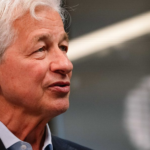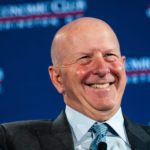Many entrepreneurs dream of that moment when they know they’ve really “made it.” That might look like turning a profit for the first time, or seeing how their product or service changes the lives of customers. It should feel like a moment of pride and celebration, but one multimillionaire serial entrepreneur admits it felt quite the opposite for her.
Lyons, the founder and CEO of Femme Fatale Media Group and Lyons Elite, said this moment was so scary for her because she had grown up watching her parents fight about money. They had even been evicted from their home, and counted coins to take the subway.
“That kind of stress doesn’t leave your body,” Lyons wrote. “It just waits.”
“I didn’t have investors or a safety net,” Lyons said in a statement. “I had a dream, and I was stubborn enough to keep going.”
Lyons also launched luxury dating service Lyons Elite, which was recognized three years in a row as the best matchmaking service in Canada by the Consumer Choice Awards. She also launched True Glue, a clean fake-lashes beauty brand in 2014, and founded the Julia Lyons Foundation, a charity supporting people with cystic fibrosis, inspired by the loss of her sister, Julia, to the disease.
Despite her success, Lyons said when her business finally took off and there were “commas in my bank account instead of panic, she “didn’t feel rich.”
“Money didn’t fix the fear,” she wrote. “It just exposed it.”
She references the old adage of “more money, more problems,” saying “wealth doesn’t erase your problems. It magnifies them.”
That anxiety encouraged Lyons to reframe her newfound wealth, though. She said she had to learn “earning it wasn’t a fluke,” and that she “deserved to keep” the money she had earned.
She learned “success wasn’t something that would be taken away the second I stopped looking,” she wrote.
This case study illustrates one of the innate challenges in being an entrepreneur or successful business person: imposter syndrome, or the psychological phenomenon of persistent self-doubt and the feeling of being a fraud despite evidence of competence and success.
“Turns out you can have everything you ever wanted and still not feel like enough,” Lyons wrote. “That’s the part they don’t put in the success stories.”
“Success doesn’t heal you,” Lyons wrote. “It just gives you the resources to finally start.”









